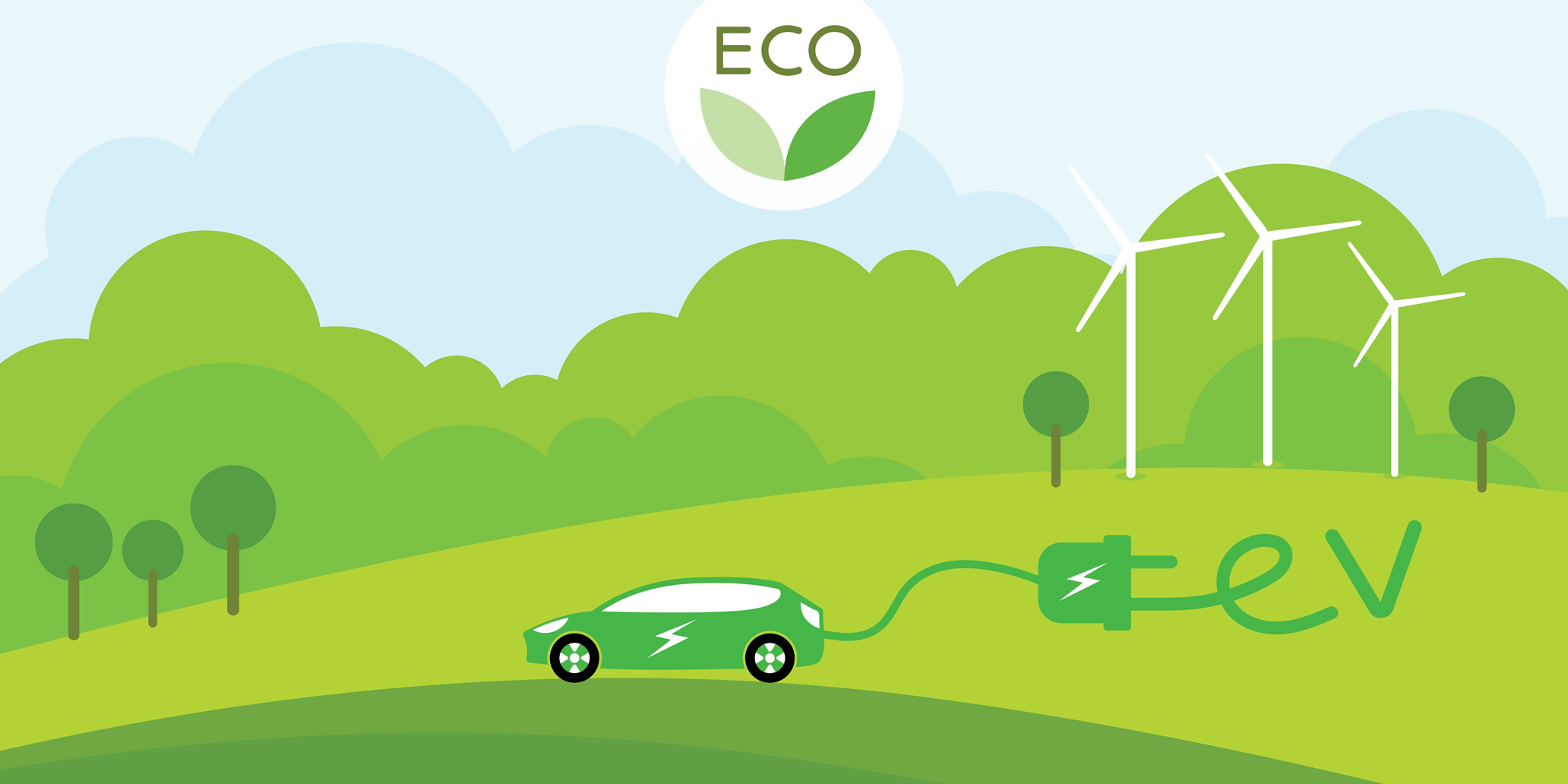How Exactly Do Electric Vehicles Save the Environment?

India is home to the third-largest road network. Our network comprises $295 million worth of vehicles with Petrol/Diesel/CNG powered engines, contributing majorly to the total automobile tally. However, these vehicles do come with a price on the environment.
Conventional vehicles that use an internal combustion engine are generally run on petrol, which negatively affect the environment with their high carbon emissions. As air pollution continues to get worse on a global level, there has never been a better time to move towards a greener future that benefits the environment.
As for the good news, many people and countries have been making the switch to electric vehicles. Electric vehicles work as an excellent alternative for their fuel-emitting contemporaries. Since EVs are powered by the same lithium-ion batteries we use in mobile phones, the greenhouse gas emissions are close to zero.
Evaluating the current scenario and looking towards a sustainable future, it’s time we understand the true importance of electric vehicles.
Let's talk about how electric vehicles play a key role in healing the environment:
Gasoline-powered vehicles have proven to be major contributors towards air pollution with their CO2 emissions. On the other hand, since electric vehicles are powered by lithium-ion batteries, there are minimal-to-zero CO2 emissions leaking into the environment. With zero dependencies on fossil fuels, EVs don’t require parts like fuel tanks or tailpipes.
This ultimately caters to a sustainable future that’s solely based on renewable energy and benefits the environment. In fact, many people across the globe have been actively switching to electric scooters - not only because of their eco-friendly nature, but because of the sheer convenience, cost-savings, and performance they bring.
Electric vehicles are powered by lithium-ion batteries that can be recharged. With their rechargeable batteries and zero dependence on fossil fuels, EVs are able to be super efficient with energy, as compared to conventional fuel vehicles.
In gasoline-powered vehicles, only about 12-30% of the energy converted by the burning of fossil fuels makes it to the wheels. In the case of electric vehicles, 85% of the electrical energy is transformed into mechanical and kinetic energy. Additionally, electric scooters, like Ampere’s Magnus EX, give you an incredible range of up to 121 Km on a single charge.
Put simply, this makes electric vehicles extremely energy-efficient, and a revolutionary difference when compared to fuel vehicles.
Electric vehicles go through a meticulous manufacturing process, which requires extreme precision and attention to detail. With persistent innovation, the carbon footprint during EV manufacturing has dropped by 2 to 3 times. In fact, as we speak, several organisations are constantly experimenting with wind & solar energy to switch manufacturing completely to be run with renewable resources.
Electric vehicles also have a long life that spans over 8 to 10 years. This results in less need to manufacture new vehicles, which, in turn, is ultimately beneficial for the environment and for the customers.
With large combustion engines, traditional fuel vehicles contribute majorly towards noise pollution as well. If you live in a city, you are familiar with the noise pollution that comes from the roads - with tires screeching, heavy engines running, squeaky brakes, etc. A conventional vehicle can produce some unpleasant sounds from its engine, gears and fans, which come from the pressure of burning fuel.
Electric vehicles, on the other hand, produce no such displeasures. Since EVs run on a silent electric charge, they produce no engine noise other than the sound of your tires on the roads, and the wind-resistance of your vehicle.
Electric vehicles have been actively making their mark in the automobile industry, with constant innovation, development, and a promise to a greener future. Compared to fuel vehicles, electric vehicles are far better for the environment, are immeasurably more convenient, more energy efficient, can be produced sustainably, and perform extremely well. With technological upgradation and more affordable models coming to the market, electric vehicles are moving closer to becoming our go-to means for transportation.
Copied to your Clipboard!